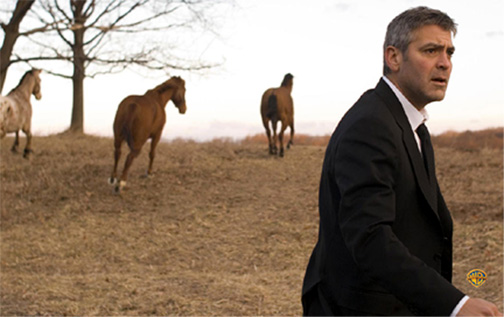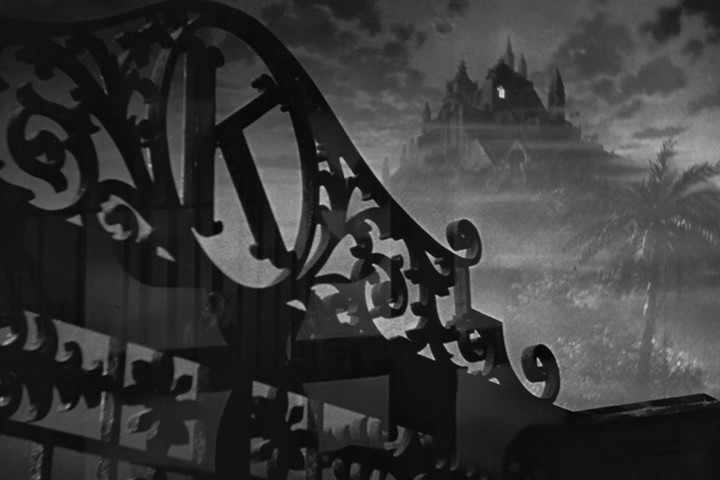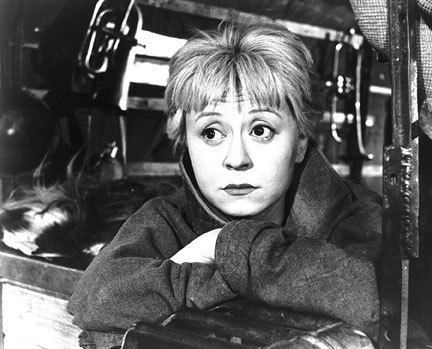Many have remarked the opening of Michael Clayton is an example of exemplary film dialogue, particuarly the extended speech of Clayton's colleague, who has discovered that his life is a lie (so to speak). Is this the raving of a bipolar sufferer or the message of a prophet? First consider the speech:"Two weeks ago, I came out of the building, okay. I'm running across Sixth Avenue, there's a car waiting, I got exactly 38 minutes to get to the airport and I'm dictating. There's this, this panicked associate sprinting along beside me, scribbling in a notepad, and suddenly she starts screaming, and I realize we're standing in the middle of the street, the light's changed, there's this wall of traffic, serious traffic speeding towards us, and I- I-I freeze, I can't move. And I'm suddenly consumed with the overwhelming sensation that I'm covered with some sort of film. It's in my hair, my face. It's like a glaze like a- a coating, and, at first I thought, oh my God. I know what this is, this is some sort of amniotic - embryonic - fluid. I'm drenched in afterbirth, I've-I've breached the chrysalis, I've been reborn. But then the traffic, the stampede, the cars, the trucks, the horns, the screaming and I'm thinkin' no-no-no-no, reset, this is not rebirth. This is some kind of giddy illusion of renewal that happens in the final moment before death. And then I realize no-no-no, this is completely wrong because I look back at the building and I had the most stunning moment of clarity.
I- I-I- I realized Michael, that I had emerged not through the doors of Kenner, Bach, and Ledeen, not through the portals of our vast and powerful law firm, but from the asshole of an organism whose sole function is to excrete the- the-the-the poison, the ammo, the defoliant necessary for other, larger, more powerful organisms to destroy the miracle of humanity. And that I had been coated in this patina of s--t for the best part of my life. The stench of it and the stain of it would in all likelihood take the rest of my life to undo. And you know what I did? I took a deep cleansing breath and I set that notion aside. I tabled it. I said to myself as clear as this may be, as potent a feeling as this is, as true a thing as I believe that I have witnessed today, it must wait. It must stand the test of time. And Michael, the time is now."
Consider the resemblances to flee. He goes to Tarshish. God calls up a great storm at sea, and the ship's crew cast Jonah overboard in an attempt to appease God. A great sea creature sent by God, swallows Jonah. Inside the fish's belly, he says a prayer in which he repents for his disobedience and thanks God for His mercy. God speaks to the fish, which vomits out Jonah safely on dry land. After his rescue, Jonah obeys the call to prophesy against Nineveh, and they repent and God forgives them. Jonah is furious, however, and angrily tells God that this is the reason he tried to flee from Him, as he knew Him to be a just and merciful God. He then beseeches God to kill him, a request which is denied when God causes a tree to grow over him, giving him shade.
In Michael Clayton, Michael may be God's messenger who involves himself in rectifying the evil that his colleague has uncovered.
Consider the resemblances to flee. He goes to Tarshish. God calls up a great storm at sea, and the ship's crew cast Jonah overboard in an attempt to appease God. A great sea creature sent by God, swallows Jonah. Inside the fish's belly, he says a prayer in which he repents for his disobedience and thanks God for His mercy. God speaks to the fish, which vomits out Jonah safely on dry land. After his rescue, Jonah obeys the call to prophesy against Nineveh, and they repent and God forgives them. Jonah is furious, however, and angrily tells God that this is the reason he tried to flee from Him, as he knew Him to be a just and merciful God. He then beseeches God to kill him, a request which is denied when God causes a tree to grow over him, giving him shade.
In Michael Clayton, Michael may be God's messenger who involves himself in rectifying the evil that his colleague has uncovered.















